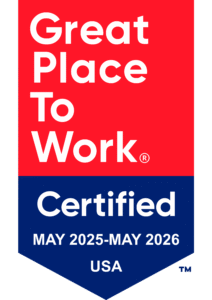“You don’t know what you got till it’s gone.” Depending upon your age, these words may recall the lyrics of a 1970s folk song by Joni Mitchell. But you might want to listen up and consider these words another kind of warning—especially if you’re a man.
More people with hearing loss. Today, twice as many people have hearing loss as in the 1980s. And sadly the trend isn’t improving. A recent report predicted that the number of U.S. adults with hearing loss will rise to nearly a quarter of the population in the next 40 years. Perhaps we’ve adapted just a bit too well to all the noise in our environment—from rock shows and subways to motorcycles and kids’ toys.
The story is even more sobering for men. That’s because hearing loss may be more common and severe in men than in women. One likely reason is that more men than women are exposed to sustained loud noises.
Links to other health issues. Increasingly, researchers are seeing links between hearing loss and other health issues—problems that often affect men. These include sleep apnea, diabetes, cardiovascular disease, depression, and dementia. Consider this:
- Sleep apnea is strongly linked to hearing loss at both high and low frequencies.
- The inner ear is so sensitive to blood flow that it could be the “canary in the coal mine” for cardiovascular disease. In other words, blood vessel blockages might show up here first.
- Hearing loss is twice as common in people with diabetes.
- Research also shows a link between hearing loss and dementia.
- In people with both depression and hearing loss, use of hearing aids reduces symptoms of depression.
Protect your hearing. You may have already experienced some hearing loss. But that doesn’t mean you can’t protect what’s left. Start here:
- Get earplugs for loud events—and wear them! Even the simple foam plugs you can buy in our store can help protect your ears.
- Let’s talk painkillers. A study in men found that taking painkillers like aspirin, nonsteroidal anti-inflammatories (NSAIDs), or acetaminophen only two times a week significantly increased the risk of hearing loss. These drugs may do this by reducing blood flow to the inner ear. If you’re concerned, let’s discuss this.
- Consider an iron test. By contrast, iron helps carry blood to the inner ear. That may be why low levels have been linked to hearing problems.
- Check the volume. It’s really tempting to turn up the volume, especially for your favorite tunes. Resist!
Of course, your doctor should first rule out a medical problem that could be causing any hearing loss. Then, let me know if you would like any guidance about specialists who can help evaluate your hearing or help you choose a hearing device. Just remember: these are not your father’s hearing aids. Today’s hearing aids are nearly invisible, can adjust to different environments, and benefit from many high-tech features.
Nothing herein constitutes medical advice, diagnosis or treatment, or is a substitute for professional advice. You should always seek the advice of your physician or other medical professional if you have questions or concerns about a medical condition.
